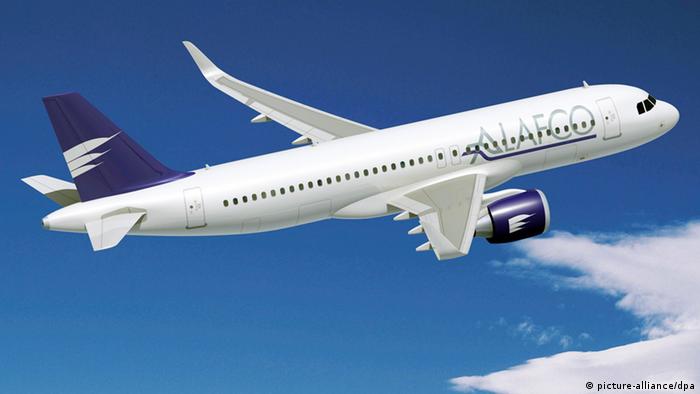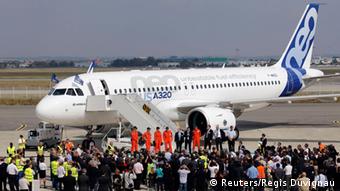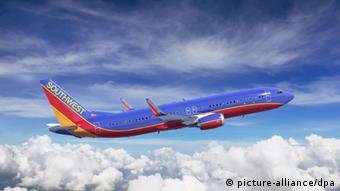Fast-selling Airbus A320neo completes maiden flight
Fast-selling Airbus A320neo completes maiden flight
The bulk of global airline routes are short- and medium-range intercity flights, and ever more people are flying. That's why medium-range single-aisle jets like Airbus's new A320neo sell like hotcakes.
Airbus sent its new-model single-aisle medium-range A320neo into the skies above Toulouse in southwest France for two hours on Thursday for the aircraft's first test flight.
The company has already taken orders from 60 airlines for a total of 3,257 new A320neos, Airbus chief operating officer for customers John Leahy told reporters.
It's a remarkable sales figure, given that not a single A320neo has been delivered yet. Airbus first began producing the aircraft's predecessor, the popular A320, in 1986, and has built and delivered about 6,200 A320s in the 28 years since then.
Smoother, quieter, more efficient
The A320neo is a revamped version of Airbus's long-established flagship A320 line of short- to medium-range narrow-body commercial passenger jet airliners.
The 'neo' in A320neo stands for 'new engine option'. Airlines will be able to choose between two different new, more fuel-efficient, quieter engines.
'Sharklet' winglets at the tips of the aircraft's wings, aerodynamic improvements, and weight reductions also contribute to the A320neo's enhanced fuel efficiency. Taken together, the improvements mean the A320neo will burn 20 percent less fuel per seat compared to the previous A320, according to a company statement.
The changes also mean lower emissions, and an increase in flight range of about 500 nautical miles (926 kilometers, or 575 miles).
Inside the aircraft, the A320neo features a new cabin with larger luggage spaces and an improved air purification system compared to the previous A320.
Airbus versus Boeing: a perennial contest
Airbus says its A320neo presently has a 60 percent market share - measured in firm advance orders - compared to the aircraft's direct competitor, the Boeing 737 MAX. The first deliveries of B737 MAX aircraft are scheduled for 2017. In contrast, Airbus expects to deliver its first A320neos to customers in late 2015.
The B737 MAX is an updated iteration of Boeing's 737 line of aircraft. It features new engines, a new wingtip device, and other changes to improve aerodynamics - in short, very much the same sort of changes Airbus made to its A320 line.
The duopolistic competition between the two great commercial aircraft makers, Europe-based Airbus and US-based Boeing, is a boon for customers. Neither company can rest on its laurels technologically, and neither can get away with overpricing.
A320neo: An arrow aimed at the heart of a growing market
Airbus released fresh forecasts on Wednesday that project robust sales over the next twenty years, as dynamic economies in Asia drive air travel to new heights. The company projects a global rate of growth of 4.7 percent in air travel from 2014 through 2033, generating a need for 31,400 new aircraft worth 3.6 trillion euros ($4.6 trillion).
"Aviation is growing impressively and our latest forecast confirms its long term growth," Leahy said.
The A320neo, which has room for up to 180 passengers, promises to be a strong seller for Airbus in coming years. Most of the forecasted increase in air travel demand will be in the medium-range single-aisle aircraft segment.
In the medium-range segment, Airbus forecasts demand over the next 20 years for more than 22,000 new aircraft worth $2.1 trillion - or 70 percent of all new airliner sales, and 45 percent of the value of total deliveries for all the commercial airliner sector.
Airbus hopes to grab as large a proportion of that total as possible - but as ever, it will have to contend with its perennial rival Boeing for customers. dw de



Comments